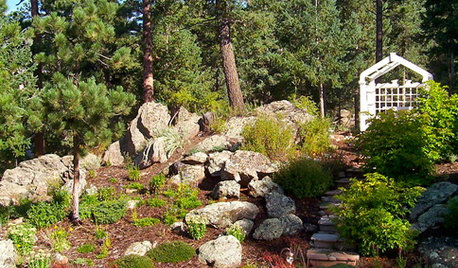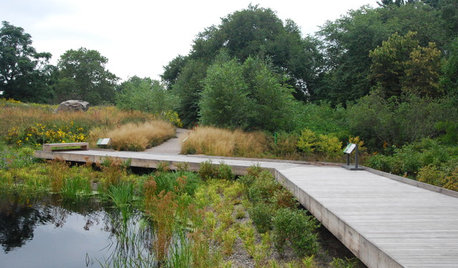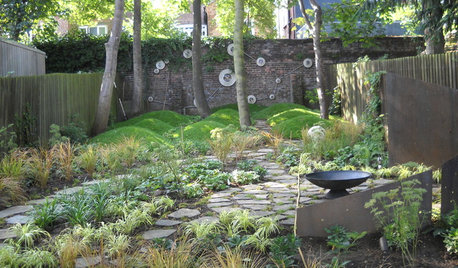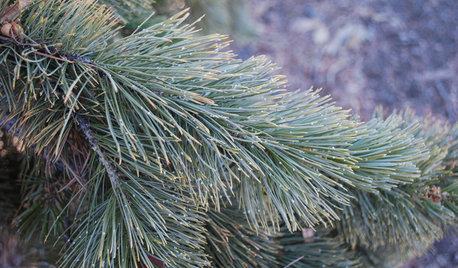Do pine trees make alkaline soil more acidic, or is that a myth?
gruntle
16 years ago
Featured Answer
Sort by:Oldest
Comments (36)
lou_spicewood_tx
16 years agoKimmsr
16 years agoRelated Professionals
Foothill Ranch Landscape Architects & Landscape Designers · Mountain Brook Landscape Architects & Landscape Designers · Lakeland Landscape Contractors · Davis Landscape Contractors · Elkridge Landscape Contractors · La Verne Landscape Contractors · Middletown Landscape Contractors · Secaucus Landscape Contractors · Seven Hills Landscape Contractors · Watertown Landscape Contractors · Bensenville Landscape Contractors · Baker Decks, Patios & Outdoor Enclosures · Kernersville Decks, Patios & Outdoor Enclosures · Saint Louis Park Decks, Patios & Outdoor Enclosures · Verde Village Decks, Patios & Outdoor Enclosuresreg_pnw7
16 years agojeannie7
16 years agotrancegemini_wa
16 years agobpgreen
16 years agoesther_opal
16 years agoKimmsr
16 years agotbly_hotmail_com
16 years agoKimmsr
16 years agogardengal48 (PNW Z8/9)
16 years agoKimmsr
16 years agobarbaranh
16 years agocowgirl2
16 years agogardengal48 (PNW Z8/9)
16 years agoKimmsr
16 years agobarbaranh
16 years agomichelle_co
16 years agofertilizersalesman
16 years agoKimmsr
16 years agofertilizersalesman
16 years agocosimo
9 years agoKimmsr
9 years agoLaurel Zito
9 years agogardengal48 (PNW Z8/9)
9 years agomadtripper
9 years agotoxcrusadr
9 years agokokopelli5a
9 years agoKimmsr
9 years agoLaurel Zito
9 years agoKimmsr
9 years agotoxcrusadr
9 years agoLaurel Zito
9 years agoKimmsr
9 years agotoxcrusadr
9 years ago
Related Stories

GARDENING GUIDESGrow a Beautiful Garden in Alkaline Soil
Got alkaline soil? Learn how to manage it and the many beautiful plants that will thrive in this ‘sweet’ soil
Full Story
GARDENING GUIDESHave Acidic Soil in Your Yard? Learn to Love Gardening Anyway
Look to acid-loving plants, like conifers and rhododendrons, to help your low-pH garden thrive
Full Story
GARDENING GUIDESGarden Myths to Debunk as You Dig This Fall and Rest Over Winter
Termites hate wood mulch, don’t amend soil for trees, avoid gravel in planters — and more nuggets of garden wisdom
Full Story
GARDENING GUIDESCommon Myths That May Be Hurting Your Garden
Discover the truth about fertilizer, soil, staking and more to keep your plants healthy and happy
Full Story
GARDENING GUIDESHow to Stop Worrying and Start Loving Clay Soil
Clay has many more benefits than you might imagine
Full Story
GARDENING GUIDESHow to Pick a Mulch — and Why Your Soil Wants It
There's more to topdressing than shredded wood. Learn about mulch types, costs and design considerations here
Full Story
GARDENING GUIDESLet's Weed Out 4 Native Plant Myths
Plant wisely for a garden that supports pollinators and requires less work
Full Story
LANDSCAPE DESIGNStars and Myths Inspire a Contemporary London Garden
A sinuously snaking path, tiles like dragon skin and a triad of stone apples give a British garden an air of enchantment
Full Story
GARDENING GUIDESGardening Solutions for Heavy Clay Soils
What’s a gardener to do with soil that’s easily compacted and has poor drainage? Find out here
Full Story
GARDENING GUIDESGreat Design Plant: Rocky Mountain Bristlecone Pine
Try this drought-tolerant small evergreen for its sculptural beauty and slow-growing nature
Full Story






gruntleOriginal Author